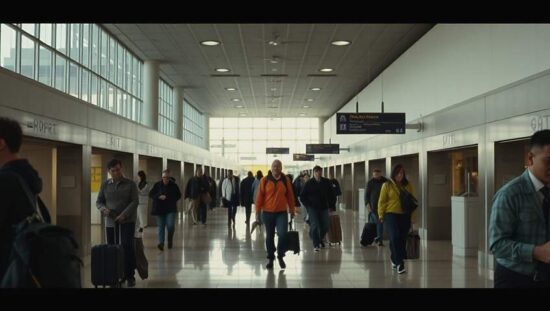Recent assessments reveal that German airports are not fully prepared to implement the EU’s relaxed liquid restrictions for carry-on baggage. A survey conducted by business magazine “Capital” across Germany’s ten largest airports highlights the ongoing technological upgrade required to accommodate the changes.
While 100 advanced Computer Tomography (CT) scanners, alongside other security equipment, are already in place at various airports, a critical software update is needed for all devices to function optimally. CT scanners utilize 3D imaging, similar to medical applications, to differentiate potentially dangerous substances from harmless liquids like water or soda. Currently, no German airport has completed a full transition to CT scanner technology.
Frankfurt Airport anticipates a complete CT scanner rollout at its new Terminal 3, scheduled to open in early 2026. Existing Terminals 1 and 3 currently have CT scanners equipped on 40 of the total 160 security lanes. Munich Airport presently operates 20 CT scanners, with a need for 60 to fully satisfy requirements. Bavaria’s state government has committed €45 million to address this shortfall, targeting a capacity for security checks that can process 500 passengers per hour without requiring the removal of liquids or electronics from bags.
Berlin Airport is currently utilizing 24 scanners, while Düsseldorf and Hamburg each have 7 and 6, respectively. Cologne/Bonn, Hannover and Nuremberg airports have one scanner each. Memmingen Airport currently lacks any CT scanners, with plans for four to be installed during a future expansion – the timeline for which remains undetermined. Stuttgart Airport did not respond to “Capital”‘s inquiry.
The European Union recently eased restrictions on liquids in carry-on baggage, effective immediately, removing the previous 100ml limit within transparent plastic bags. Passengers are now theoretically permitted to carry up to two-liter bottles, contingent upon security screening via CT scanners. However, German passengers cannot reliably benefit from these relaxed regulations until all airports complete their technological upgrades.





